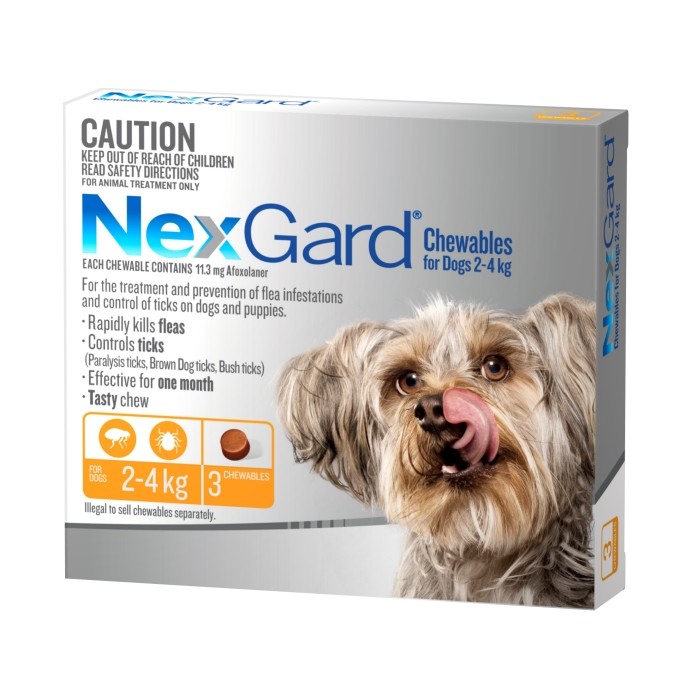Small parasites can lead to big problems for your pet that are difficult to treat. So when it comes to fleas, ticks and heartworm, it’s important to prevent them altogether.
Fleas
Fleas are small brown parasitic insects that infest the coat and skin of your pet. Many people think fleas are just an irritation but, if left untreated, they can be fatal to your pet. Dr Sae Namekata-Wales from Greencross Vets Strathfield says fleas can cause serious health problems even over short periods. “Fleas will cause skin disease, tapeworm infection and anaemia in some dogs, especially young puppies,” she says. If your pet has fleas, see your local Greencross Vets to discuss what possible treatments –which could include spot-on treatments, chews, tablets or sprays – will best suit your pet. Also speak to your vet about treating your pet’s living environment.Cats have flea treatments like the above example.
For dogs, topical treatments are easy to apply, but can wash off. Chewable treatments for dogs can last longer, like the product below.You can easily buy 2 in 1 chewable treatments that kills both fleas and ticks for dogs like the above example
Ticks
Ticks are small, round-looking parasites that burrow into your pet’s skin to feed and breed. While doing so, they can inject a toxin that affects all muscles until they become completely paralysed. “Paralysis ticks cause progressive paralysis in the muscles, which requires anti-toxin treatment and dogs can die from this toxin,” says Dr Namekata-Wales. There is no one-stop-shop prevention method, however tick collars, top-spots, chew tablets and spray products will all reduce the likelihood of a tick latching onto your dog. Cats are more sensitive to chemicals, so the best way to prevent a tick latching on to your cat is to check it daily.Aristopet have a tick spray that can be used for both dogs and cats.
Heartworm
Heartworm is a parasite that is transmitted by mosquitos and infects both cats and dogs. The parasite matures in the pet’s organs for six months, becomes a worm, and then migrates to the heart and the blood vessels of the lungs. “Heartworms live in the dog’s heart and physically damage it. They also clog the vessels leading from the heart,” says Dr Namekata-Wales. For dogs, there are almost no signs of heartworm until heart failure. Not only is this condition highly fatal, but treatment for cats and dogs can be complex and expensive – so prevention is key. “If the dog already has been suffering from damage to the heart, lungs and other organs, the body may not be able to tolerate coping with the dead adult worms once medication is given,” says Dr Namekata-Wales. For dogs, monthly chewable tablets and top-spot treatments are available. However, the most effective prevention method is to take your dog to the Vet for yearly injections. For cats, monthly tablets and top-spot treatments are also available.The ALL WORMER above is available for Cats and Dogs.
Intestinal Worms
Dogs and cats are victims of several intestinal parasites frequently referred to as worms. The most common are the roundworms, tapeworms, hookworms, and whipworms. Pet Owners will only be able to see 2 worm types – roundworms and tapeworms – unaided (without a microscope). Often you will be able to tell if your dog or cat has worms by the symptoms they are exhibiting:- Diarrhea, perhaps with blood
- Weight loss
- Dry hair
- General poor appearance
- Vomiting, perhaps with worms in the vomit

Find local Vets, store your Pet’s Health, etc, download PetCloud today.
Download IOS: https://apple.co/2PifzXs Android: https://bit.ly/3aFeK2m











